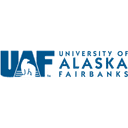This course is part of Social Work: Perspectives on Trauma and Wellness.
This comprehensive course explores trauma and wellness through multiple cultural perspectives, with a focus on decolonizing trauma work and incorporating Indigenous knowledge. Students learn to examine their own cultural backgrounds and biases while developing practical wellness tools for both personal and professional use. The curriculum emphasizes the importance of understanding historical trauma, climate change impacts, and diverse experiences across different populations. Through a combination of theoretical knowledge and practical application, students develop skills to become more compassionate and mindful helpers while maintaining their own well-being.
4.4
(5 ratings)
Instructors:
English
English
What you'll learn
Understand trauma through diverse cultural perspectives
Develop cultural self-awareness and identify personal biases
Master wellness tools for nervous system regulation
Apply decolonized approaches to trauma work
Understand historical trauma and Indigenous perspectives
Implement effective therapeutic relationships
Skills you'll gain
This course includes:
PreRecorded video
Graded assignments, Exams
Access on Mobile, Tablet, Desktop
Limited Access access
Shareable certificate
Closed caption
Get a Completion Certificate
Share your certificate with prospective employers and your professional network on LinkedIn.
Created by
Provided by

Top companies offer this course to their employees
Top companies provide this course to enhance their employees' skills, ensuring they excel in handling complex projects and drive organizational success.





There are 6 modules in this course
This course provides a comprehensive exploration of trauma and wellness through diverse cultural perspectives. Students examine trauma through a decolonized lens, with particular attention to Indigenous perspectives and historical trauma. The curriculum covers relationality in therapeutic alliances, climate change impacts on trauma and wellness, and practical applications of wellness strategies. Throughout the course, students develop self-awareness, cultural competency, and practical tools for both personal and professional growth.
Decolonizing Trauma Work
Module 1
Historical Trauma – Historical Wellness: An Indigenous Perspective
Module 2
Diverse Voices: Varied Experiences of Trauma and Wellness
Module 3
Relationality and Relational Accountability – The therapeutic Alliance
Module 4
Impacts of the Changing Climate on Trauma and Wellness
Module 5
Linking Theory to Practice – Moving Forward with New Insights
Module 6
Fee Structure
Individual course purchase is not available - to enroll in this course with a certificate, you need to purchase the complete Professional Certificate Course. For enrollment and detailed fee structure, visit the following: Social Work: Perspectives on Trauma and Wellness
Instructor

4 Courses
A Distinguished Leader in Indigenous Wellness and Trauma-Informed Care
LaVerne Xilegg Demientieff serves as Professor and Chair of the Social Work Department at the University of Alaska Fairbanks, where she has established herself as a leading expert in Indigenous wellness and trauma-informed care. After earning her PhD and LMSW, she has built an impressive 20-year career focusing on healing-centered engagement and resilience, particularly within Indigenous communities. As a statewide trainer, she leads workshops on historical trauma, historical wellness, adverse childhood experiences, and trauma-informed care. Her research contributions include groundbreaking work on Housing First programs through an ecological and trauma-informed lens, and significant publications on Indigenous perspectives on wellness, including her work on Deg Xit'an Athabascan approaches to healing. Through her leadership at UAF's Department of Social Work, she has been instrumental in developing innovative approaches to building Alaska's social work workforce while maintaining her commitment to language healing and reclamation. Her expertise spans individual, group, and community wellness, with particular emphasis on cultural healing and ancestral knowledge. Beyond her academic work, she serves as a consultant and trainer in community-based wellness research, contributing to the broader understanding of Indigenous approaches to healing and resilience.
Testimonials
Testimonials and success stories are a testament to the quality of this program and its impact on your career and learning journey. Be the first to help others make an informed decision by sharing your review of the course.
Frequently asked questions
Below are some of the most commonly asked questions about this course. We aim to provide clear and concise answers to help you better understand the course content, structure, and any other relevant information. If you have any additional questions or if your question is not listed here, please don't hesitate to reach out to our support team for further assistance.


